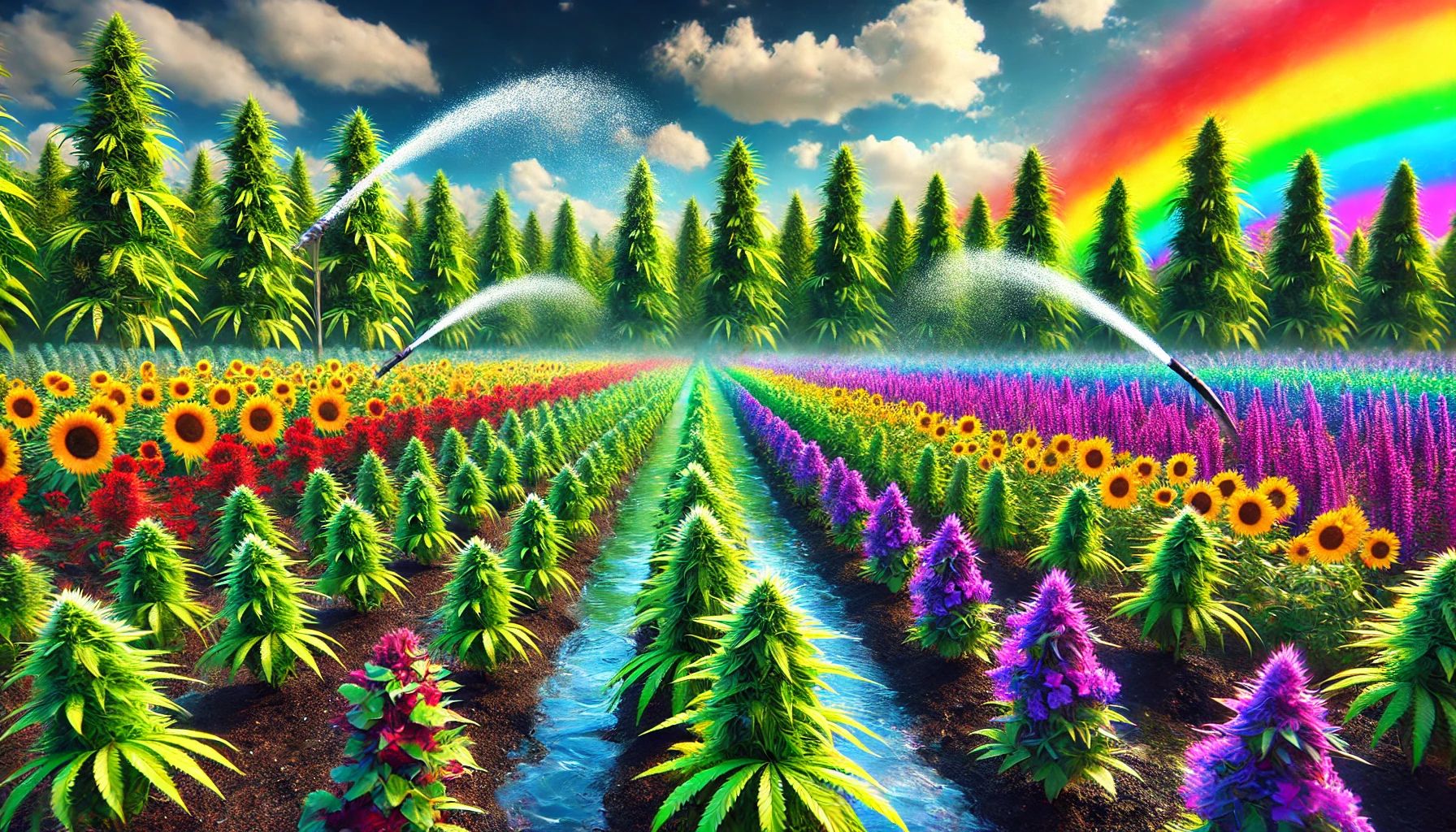
News 🎥 Highlights:
Water 🌦️ Conservation Potential: Hemp farming 🍠 can significantly reduce water consumption compared to crops like cotton, using up to 50% less water. This makes hemp 🌲 an ideal crop for regions facing water scarcity. Its deep root system also enhances water retention in the soil, reducing the need for frequent irrigation. Nichelle Henderson Marketing
Impact ☄️ on Biodiversity: Hemp fields support local biodiversity by providing habitats for pollinators such as bees 🐝 and butterflies. Its low pesticide requirement also helps protect 🪖 water resources from chemical runoff, promoting healthier ecosystems. NAP Limited
Soil 🟤 and Water Health: Hemp farming can prevent soil erosion and reduce sediment runoff into nearby water bodies. This helps maintain cleaner rivers and lakes, as well as improving soil structure through its robust root 🍅 system. Go Green With Hemp, Stroud Water Research Center

Quick 📤 Read:
Hemp’s 🦎 Sustainability Potential: Hemp farming is widely regarded as a sustainable crop, requiring fewer ⬇️ pesticides and fertilizers than traditional crops, which benefits soil health and the environment 🌋.
Water Efficiency of Hemp 🦚: Compared to other water-intensive crops like cotton 🤍, hemp is considered more water-efficient, though its actual water use depends on climate, soil 🐌, and irrigation techniques.
Regional 🇺🇸 Water Resource Impact: In drought-prone regions, hemp 💚 farming can strain local water supplies, raising concerns about its long-term sustainability and impact on surrounding communities 👱♂️👱♀️ and ecosystems.
Irrigation Techniques and Water 🌧️ Conservation: Drip irrigation systems can optimize water use in hemp 🐢 farming, though many small farms struggle with the financial capacity to implement these advanced techniques.
Holistic 🌈 Environmental Considerations: Hemp's 🪲 environmental footprint extends beyond water use, as it can contribute to runoff and water contamination if not managed 👩🔬 responsibly, necessitating regulatory oversight and sustainable farming practices.

Hemp Farming’s 👒 Impact on Local Water Resources: Eco-friendly or Resource-Draining?
Hemp farming 🌿 has garnered attention as a sustainable alternative to more resource-intensive crops, praised for its versatility in applications ranging from textiles 👚 to biofuels 🛢️. However, an important question arises as the hemp industry expands: Is hemp truly eco-friendly, or does it drain valuable water resources? 🌍
Sub-irrigation systems conserve water by minimizing evaporation and runoff, offering an efficient way to hydrate hemp plants while promoting sustainability. This method can result in significant water savings compared to traditional irrigation techniques"
The Rise of Hemp Farming 🚜
In recent years, hemp 🐊 has re-emerged as a major agricultural crop due to its myriad uses and environmental benefits. It’s widely considered to require fewer pesticides 🦋 and chemical fertilizers compared to traditional crops 🍆, making it a more sustainable option. Moreover, hemp can improve soil health 🌻 by preventing erosion, adding organic matter, and supporting crop 🧄 rotations. However, as the demand for hemp increases, there’s growing scrutiny on its water consumption 🌊.
Water ☔ Efficiency of Hemp
Hemp 🌺 has a reputation for being relatively water-efficient compared to cotton 👕, a notorious water guzzler. On average, hemp requires about half the amount of water 🌧️ needed to produce the same quantity of fiber 🧵 as cotton. Yet, not all hemp farms are created equal. The amount of water needed depends on the region’s climate 🌤️, soil quality, and irrigation methods 🚿. In areas where water is already scarce, growing hemp can place additional strain on local water supplies 💧.

Regional Water Use Concerns 🚨
In drought-prone areas ☀️, the impact of hemp farming on local water resources can become significant 🚱. While hemp is often lauded as drought-resistant 🏵️, it still needs adequate water to grow and thrive. In regions where water use is carefully regulated 🧯, such as California or Arizona 🏜️, the expansion of hemp farms may raise concerns over the sustainability 🪴 of local water resources. In these areas, every drop counts 💦, and diverting water for large-scale hemp production could pose challenges for the surrounding ecosystems 🐠 and communities 🏡.
Irrigation Practices
The method by which farmers irrigate hemp fields plays a pivotal role in its overall sustainability. Drip irrigation systems 🧑🔧, for example, can significantly reduce water waste compared to flood irrigation 🌫️, which can result in excess water use and runoff 💨. However, many smaller farms 🌳 may not have the capital 🏦 to invest in advanced irrigation systems, leading to inefficiencies in water usage 🌽. The gap between ideal water management practices 🌼 and what’s actually implemented often widens due to a lack of resources or regulatory oversight 🧾.

Environmental Impacts Beyond Water 🐟
The water footprint of hemp farming isn’t the only environmental factor to consider. The potential for water contamination 🧪 also exists. If not carefully managed, hemp farms can contribute to nutrient runoff 🏞️ and pesticide contamination of nearby rivers and lakes 🏖️. While hemp requires fewer chemicals than traditional crops, it’s not immune to these issues. Hence, the local environmental impact of hemp cultivation must be examined holistically, considering not just water use but the overall ecological footprint 🐾 of the practice.
Balancing ⚖️ Act: Eco-Friendly or Resource-Draining?
So, is hemp an eco-friendly crop that conserves water, or is it another industry draining precious resources? The answer lies in responsible farming practices 🚶♂️, innovative water-saving technologies 🚰, and region-specific strategies to balance water use 🗺️ with sustainability goals. Hemp can indeed be a powerful tool for reducing the environmental strain caused by traditional crops 🍇, but its environmental impact depends heavily on how and where it’s grown 🏔️.
Ultimately, hemp farming's sustainability must be assessed not just by its theoretical benefits but by its practical execution in the context of local water resource management 💡. As with any crop, regulation ⚙️ and education 📖 about sustainable practices will be key to ensuring that hemp lives up to its eco-friendly reputation.
Is the future of hemp farming bright 🌝 or fright 🌚 with water challenges?
💃 Excited For Tomorrow 🕺

The information provided in this newsletter is for informational purposes only and does not constitute medical, legal, or professional advice. Always consult with a qualified professional before making any decisions based on the content shared here.
